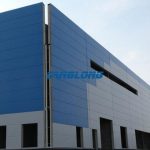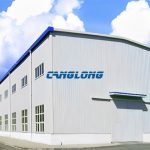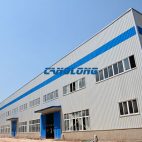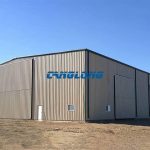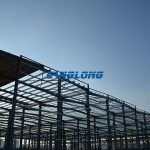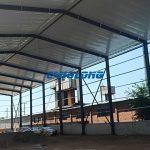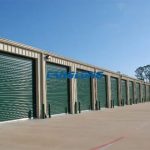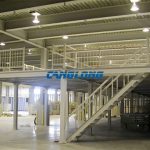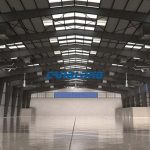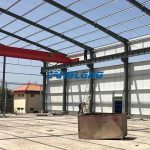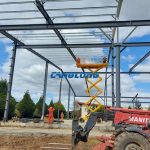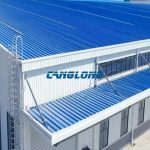What materials are used to build the metal shop?
Building a metal workshop requires a variety of materials to be effective and efficient. The following are some of the materials necessary for the construction of a metal workshop:
Foundations and Substructure
The foundation and substructure of the metal workshop are essential in providing stability and support to the building. The foundation should be constructed using durable materials such as concrete or masonry to withstand the weight of the building and to last for the duration of its use. The substructure can be constructed using steel columns, beams, and braces to support the floor and ceiling slabs.
Floor and Ceiling Slabs
The floor and ceiling slabs of the metal workshop need to be constructed using durable materials able to withstand the constant movement and transportation of heavy equipment and materials. Concrete slabs reinforced with steel mesh and steel bars are commonly used for this purpose. The floor may also require a coating of a wear-resistant material such as linoleum or concrete sealant for added durability.
Steel Structural Members
Steel structural members are essential for the construction of metal workshop. These members can be used to support the building structure and to provide additional strength and stability. Steel columns, beams, braces, and girders can be purchased from steel stockholders or fabricated on-site using steel sheets and sections. The steel members need to begalvanized or painted with a protective coating to prevent rusting and corrosion.
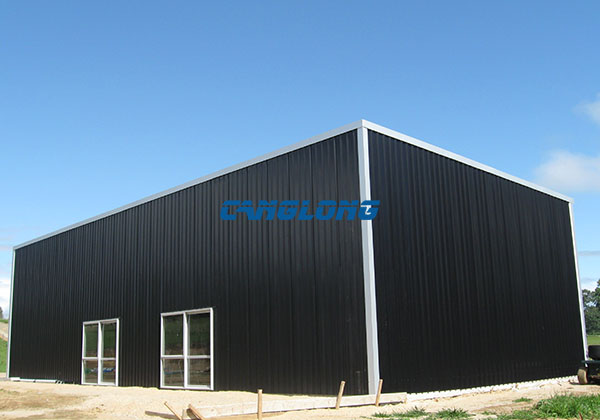
Electrical Wiring and Fixtures
The metal workshop requires a reliable source of electricity to power lighting, tools, and equipment. Electrical wiring and fixtures need to be installed throughout the building to provide uninterrupted power supply. The wiring should be installed by a qualified electrician and should comply with the relevant electrical codes and regulations to ensure safety. Lighting fixtures should also be strong enough to withstand the weight of tools and materials suspended from them.
Plumbing and Drainage
The metal workshop requires a plumbing system to supply water for cleaning, washing hands, and for other general purposes. The drainage system should be able to accommodate the high volume of water generated during the manufacturing process. The plumbing system should also comply with the relevant plumbing codes and regulations to ensure safety and efficiency.
Ventilation System
The metal workshop requires a ventilation system to control the indoor air quality and to prevent the buildup of harmful fumes, dust, and smoke generated during the manufacturing process. The ventilation system should be able to extract harmful fumes from the air and should provide fresh air into the building. The ventilation system can be installed using fans, air filters, exhaust hoods, and vents.
Fire Protection Systems
The metal workshop requires fire protection systems to protect personnel, equipment, and the building from the risk of fire. The fire protection systems should include fire extinguishers, sprinkler systems, smoke detectors, and alarms that are easily accessible and visible throughout the building. The fire protection systems should also comply with the relevant fire protection codes and regulations to ensure safety.
In conclusion, building a metal workshop requires a variety of materials to ensure its stability, durability, functionality, and safety. The materials necessary for its construction include foundation and substructure materials, steel structural members, electrical wiring and fixtures, plumbing and drainage systems, ventilation systems, and fire protection systems. Each material chosen should comply with relevant building codes and regulations to ensure safety, efficiency, and longevity of the metal workshop.
